Chair of Community Mental Health
Head of chair: Vera Grebenc
Members: Vito Flaker, Vera Grebenc, Andreja Rafaelič, Amra Šabić, Juš Škraban and our external associates, friends, critics and allies: Nika Cigoj – Kuzma, Katarina Ficko, Simona Gerenčer, Andraž Kapus, Andrej Kastelic, Vili Lamovšek, Bogdan Lešnik, Shula Ramon, Simona Ratajc, Marjan Vončina and others. The retired associate of the chair is Jelka Škerjanc, PhD.
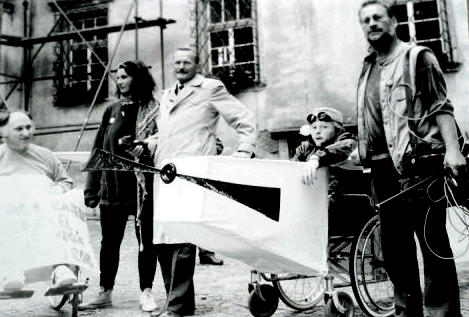 |
| Hrastovec Youth Social Research Camp, 1988 |
Introduction
In Slovenia, the organised support for people with mental health distress has been available since the 1990s onwards, although some elements of deinstitutionalisation were seen before, in short-term experimental projects.
The Chair of Community Mental Health aims to develop and explore the concepts, approaches and methods in the field of mental health, with a focus on the forms of support for people with mental health distress in their home environment and in community. In cooperation with the Centre for Drugs and Addiction Studies , we explore drug use as a social, social work, health and discursive and political phenomenon.
The first and long-standing Head of the chair was Vito Flaker. The chair was founded on the knowledge, experiences, methods, approaches and ethical principles that the colleagues (and our predecessors) have developed in action research projects and experimental projects in the field of community mental health ever since the 1980s (e.g. camp in Hrastovec in the 1980s, TEMPUS study programme in community mental health in the 1990s, community innovations, such as group homes, crisis teams, advocacy, Women’s Counselling Service, low-threshold approach in the field of drug-use, deinstitutionalisation after 2000, awareness-raising campaigns and other).
Our long-standing colleague and professor in the field of community mental health who made a vast contribution to the development of the chair was Prof. Tanja Lamovec, PhD (1946 – 2006).
What does work with students involve?
The Community Mental Health curriculum introduces students to various concepts and approaches to mental distress, providing them with a framework for understanding the field from the historical, intercultural and gender perspectives. During their studies, the students acquire specific practical knowledge, methods and skills, such as advocacy, personal planning, risk analysis, storytelling and story recording, rapid needs assessment, work in acute crisis, etc. Upon completion of the programme, the students are familiar with the existing community mental health practice, have the ability of critical analysis, are sensitive to the user perspective and have the necessary skills for professional community work with people with mental health problems.
We aim to associate the teaching process with contemporary research and projects in which we are involved, and for this reason we also do some fieldwork. In some cases, this means longer collaborative work in the context of camps (which the students do as a study placement), in other cases, this involves visits to the Faculty by our project and other collaborators from user and other organisations. Often, we also organise public educational events with them on current topics in community care, where students and the public are invited to participate.
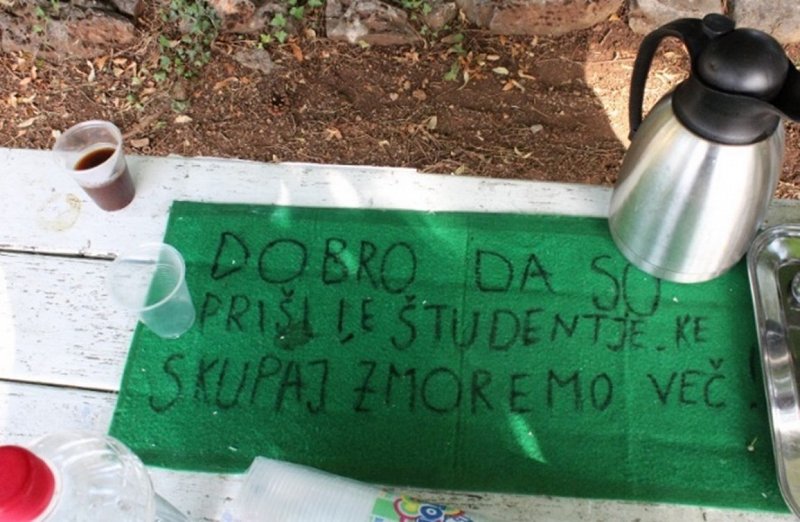 |
| Photo by Katra Zajc |
We associate with …
The chair has a wide network of contacts in the region and worldwide. Its members participate in thematic networks, such as ENTER – European Network on Training, Evaluation and Research in Mental Health, NERUDA - Network for European Research in Drug use and Addiction, the Council of Europe Pompidou Group, DANASWAC – Discourse and Narrative Approaches to Social Work and Counselling in others. Vito Flaker is director of Dubrovnik School of social work theory and practice at Inter University Centre Dubrovnik.
Our research and projects
Our chair is involved in relevant research projects locally and in Europe. Through basic and applied research, we develop knowledge and methods in the field of community mental health, deinstitutionalisation, long-term care, inequality in mental health (women, LGBT+ persons, refugees and migrants), drug policies, social work in natural disasters and other emergencies, practical (contextual) methods of social work with people in acute and long-term mental distress and drug-users (the latter case involves mainly methods of harm-reduction and prevention in schools, prisons, etc.). In particular, action-oriented, ethnographic and narrative approaches and a user perspective are at the forefront.
Key projects we have led or participated in:
Currently, we are involved in the projects of deinstitutionalisation in CUDV Črna na Koroškem and Dom na Krasu (Dutovlje) (2020-2021 in 2021-2022).
Voices for Justice: Communicating with Victims of Crime with Disability (EU, JUST, 2020-2022).
TropTNT: Taktike raziskovanja in obvladovanja prihodnosti - tveganja na tehtnici (2020).
Strukturna diskriminacija kot ovira pri doseganju cilja dostojnega življenja za vse (CRP - ARRS in Zagovornik načela enakosti, 2019-2021).
Diversity & Childhood: Changing social attitudes towards gender diversity in children across Europe (EU, REC, 2019-2021).
Razvijanje vrstniške podpore znotraj in zunaj okvirjev zavoda Dom na Krasu – GlasKras (ŠIPK, 2020).
Socialna vključenost ljudi s težavami v duševnem razvoju preko zaposlitve – ČrnaDela (ŠIPK, 2020).
Krepitev glasu oseb s težavami v duševnem zdravju za samozagovorništvo (ŠIPK, 2018)
Center za zagovorništvo (ŠIPK, 2018).
Best practices for Care and Wellbeing Education to support the needs of LGBT people as they age - BEING ME (Erasmus+, 2017-2020).
The study of a preparation of the basis and a plan for deinstitutionalisation in Slovenia (MDDSZ in Evropski socialni sklad, 2015).
Access to Justice for Children with Mental Disabilities (EU, JUST, 2013-2015).
PROMISE - Promoting Mental Health Minimising Mental Illness and Integrating Social Inclusion through Education (EU, Second programme of community action in the field of health 2009-2012).
deinstitutionalisation of long-term mental health institution in Albania (training in place of the staff of residential homes in Shkodër, Albania), 2009 - 2010, WHO Albania.
EX-IN – Experienced Involvement (EU, Leonardo da Vinci pilot projects, 2005-2007).
EMILIA - Empowerment of Mental Illness Service Users Through Lifelong Learning Integration and Action (EU, FP6, 2005-2010).
Analiza in ocena potreb po socialnih storitvah in možnosti samopomoči prebivalstva v primeru izrednih razmer na območju Mestne občine Ljubljana (MOL, 2007-2009).
Training of statutory advocates for the rights of people in the field of mental health and coordinators of community care (MDDSZ, 2010, 2011, 2018, 2022).
Formal and professional frameworks for the introduction and implementation of the Mental Health Act (MDDSZ, 2009).
Evaluation of deinstitutionalisation processes in special social institutions in Slovenia (CRP projekt, ARRS in Vlada RS - MDDSZ, 2006 – 2008).
Forms of accommodation and support for vulnerable groups (people with dementia, people with long-term mental health problems and people with intellectual disabilities) in the Municipality of Ljubljana (MOL, 2006-2008).
Contextual Methods in Social Work (Oriented Basic Research) (MŠZŠ 2001-2004).
Models and methods for measuring the impact of development and prevention programmes in the field of social protection (MDDSZ 2000-2001).
Planning the development of psychosocial services based on the needs of people with long-term psychosocial distress in Slovenia (Ministrstvo za znanost in tehnologijo 1992-1994).
Developing voluntary youth work (Improving and protecting health and social protection) RK ZSMS in PoRS, Republiška skupnost socialnega skrbstva 1987-1988).
The projects of the Faculty of Social Work are also available here: Pregled raziskovalnega dela 1969-2010 (ur. Lidija Kunič, 2011)
Major publications:
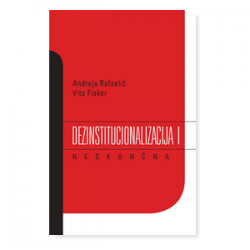 |  | 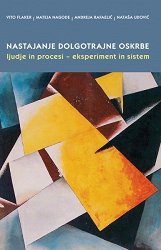 | 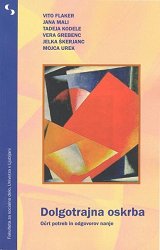 |  |
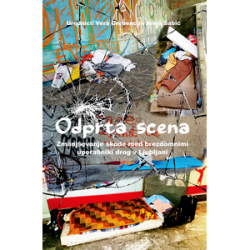 | 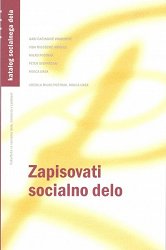 |  |  | 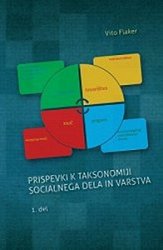 |
 | 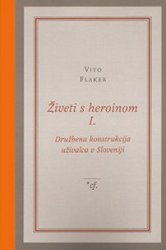 |  |  | 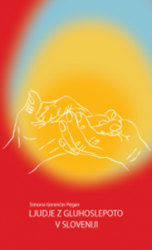 |
 | 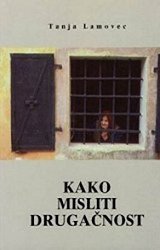 |  |